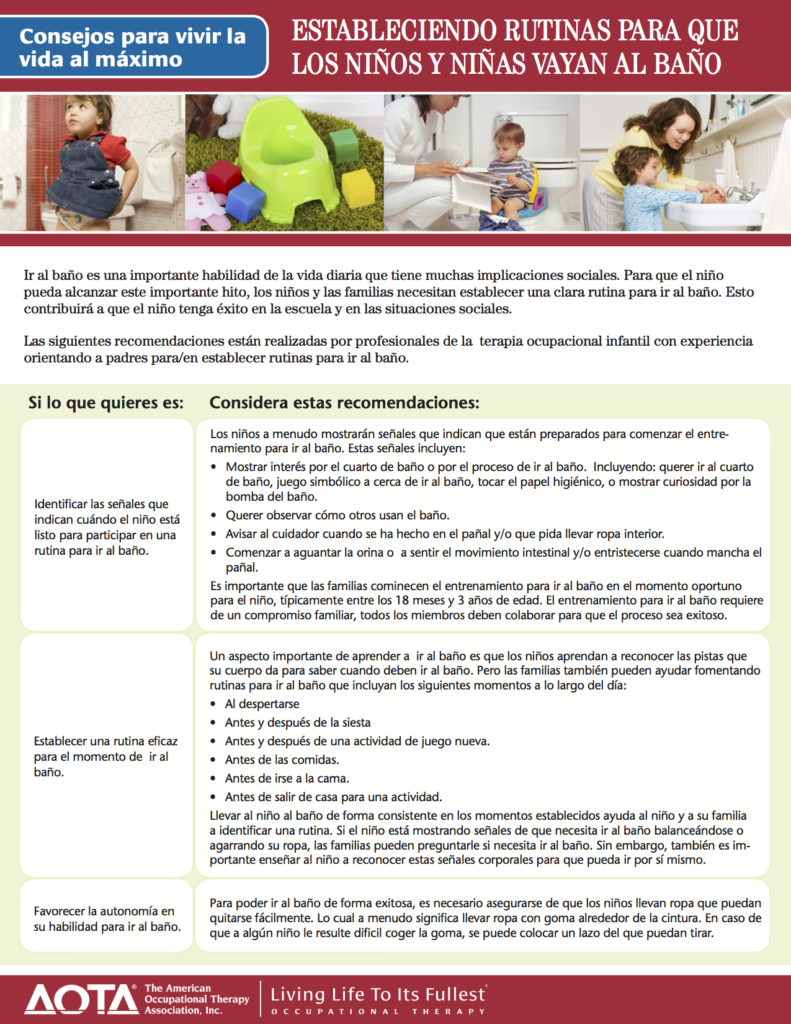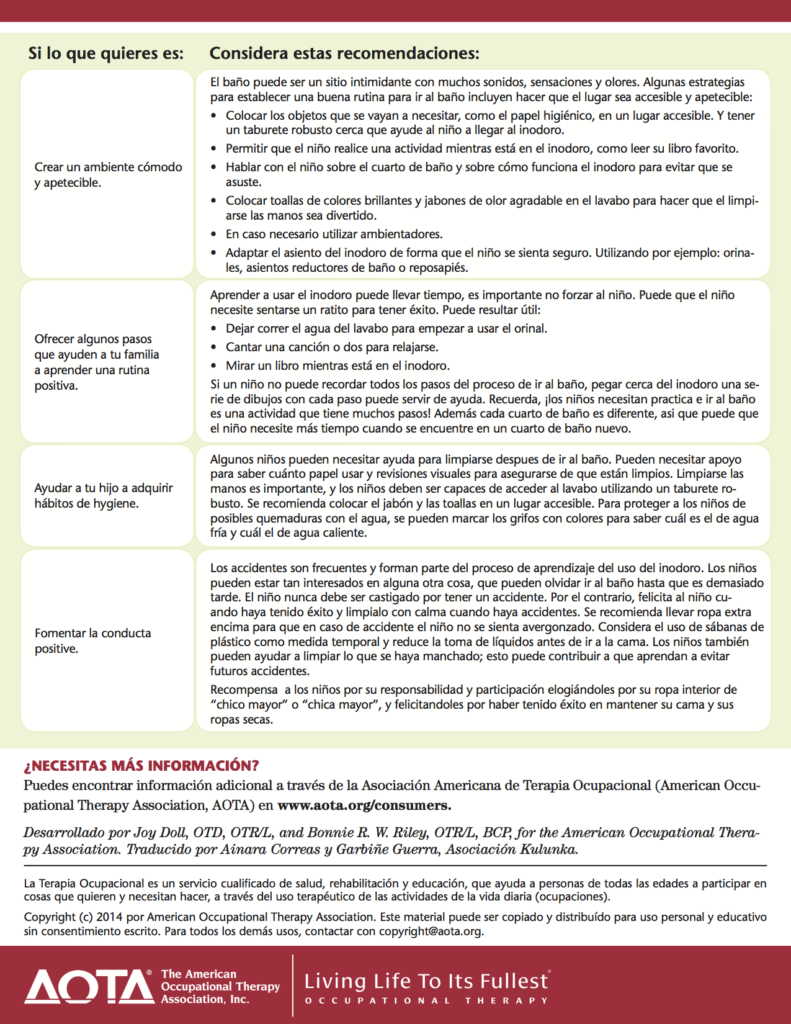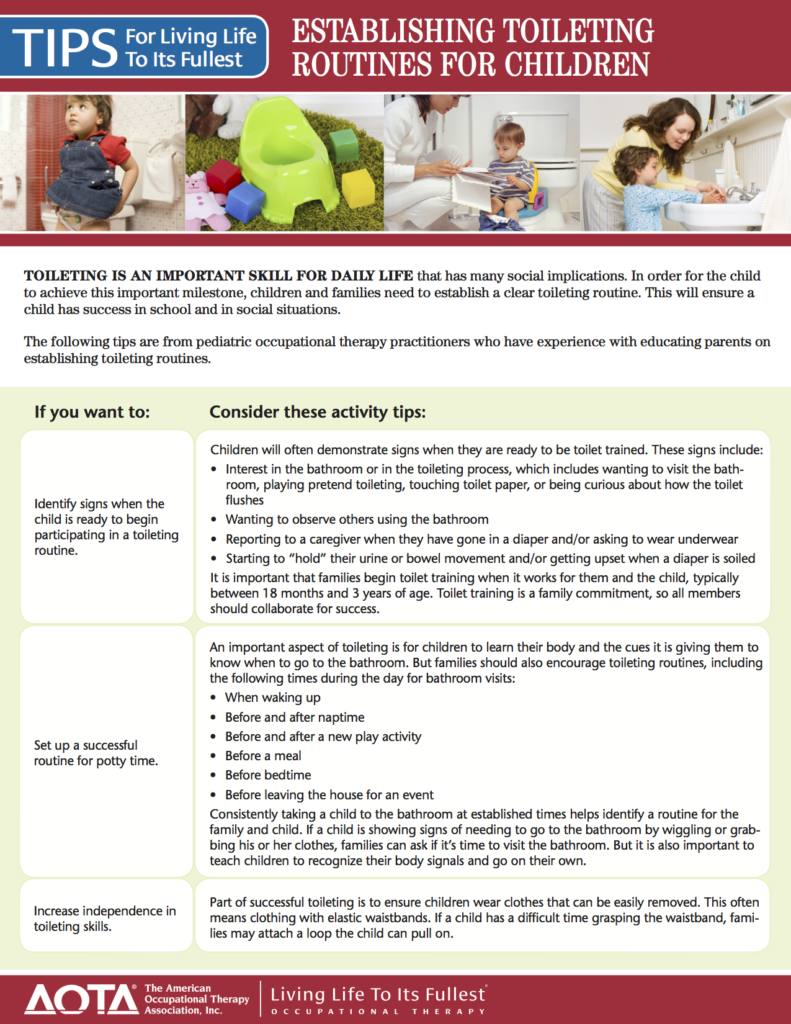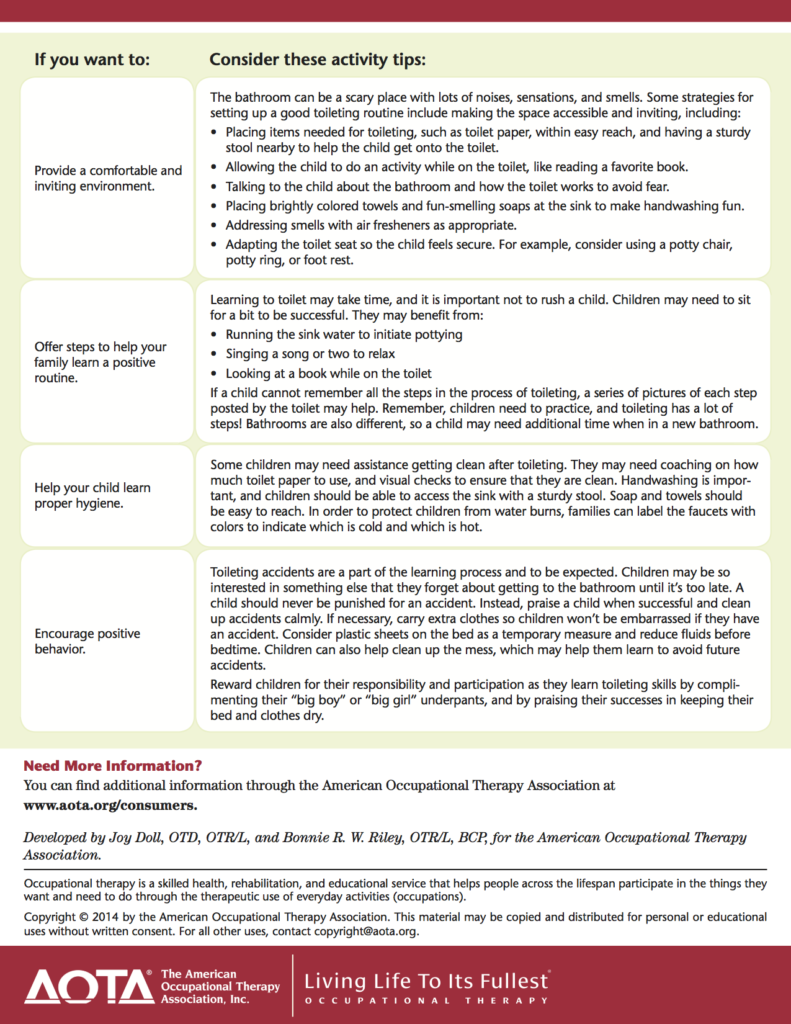What is Sensory Integration?
All of us learn about and comprehend the world through our senses. We see things, we hear things, we touch things, we experience gravity, and we use our bodies to move around in it. All of the sensory input from the environment and from inside our bodies works together seamlessly so we know what’s going on and what to do.
Sensory integration is something most of us do automatically. Usually, sensory input registers well, gets processed in the central nervous system and then hooks up seamlessly with all of the other senses. This lets us think and behave appropriately in response to what’s going on.
Kids with sensory integration (SI) dysfunction experience the world differently. They don’t take in and use sensory information the same way. Their central nervous system responds to sensory input differently, so they’re not always getting an accurate, reliable picture of their bodies and the environment.
Think of sensory integration like an orchestra. You need the woodwinds section, the strings section, the percussion, the piano to all be in tune, playing in key at the right volume, all perfectly coordinated with each other. With SI dysfunction, the conductor isn’t controlling the music well. Different sections in the orchestra are out of tune and out of sync so it doesn’t sound right.
For a child with severe sensory issues, walking into the supermarket can feel like walking into a rock and roll concert. Such a child may be able to see and hear the fluorescent lighting flicker, a squeaky shopping cart may sound like thunder, the meat department may smell like a garbage dump, and navigating the aisles and other shoppers may feel like being on a bumper car ride. What seems normal to us can easily overwhelm a child with sensory problems.
Common Signs of Sensory Integration Dysfunction
• Out of proportion reactions: over or undersensitivity to touch, sounds, sights,
movement, tastes, or smells
• Problems with vestibular (movement) and proprioceptive senses (body awareness)
• Bothered by particular clothing fabrics, labels, waistbands, etc.
• Avoids or excessively craves intense movement — slides, swings, bouncing, jumping
• Resists grooming activities such as brushing teeth and washing hair
• Avoids foods most children enjoy
• Gets dizzy easily-or never at all
• Seems clumsy or careless
• Often “tunes out” or “acts up”
• Poor attention and focus
• Uncomfortable in group settings
• Very high or very low pain threshold
• Squints, blinks, or rubs eyes frequently (may have an undiagnosed vision problem)
Compiled by Sara Torten MS, OTR/L
How to Play with your Child
Playing with your child is a way to teach them about social engagement, following rules, impulse control (taking turns), language development, developing imagination, exploring the environment, and brain (cognitive) development. Model play behaviors, have fun, be relaxed, and allow free play as this is when children initiate and learn the most.
- Get down to your child’s level (sit on the floor next to your child).
- Observe – what is your child looking at, what is he interested in.
- Stay physically close and use touch often (rub their back, hug).
- Provide firm, maintained, touch pressure hugs throughout the day and play time.
- Imitate your child (sounds and actions) – allow him to be the leader.
- Some children do better when others interact with them with quiet voices, some do better with a more animated voice, and some with a sing song voice. Try different approaches and observe your child’s response. Try to match your level of enthusiasm to your child’s to show him you are as engaged as he is.
- Slow down – wait for your child to process and formulate a response or action. As children are learning new skills they need more time to process information.
- Join in your child’s play imitating what he does and slowly expanding on it (from building a tower with blocks, to knocking it over “accidentally”, to creating a train from the blocks…)
- Use positive language (instead of “that does not fit” say “try this, maybe it will fit better here”)
- Use simple, short words and sentences. Do not give directions – use language to support, expand, and describe his play (“That’s a great tower, so high”).
- Give lots of verbal and physical reinforcements.
- Observe – if your child is turning his head, shutting his eyes, moving away – something does not feel right to him. Change the way you are interacting to regain the positive, eye contact, smile engagement.
- Learning happens in a relaxed, happy, supportive environment.
- Match your pace (speed of engagement) and level (loudness and animation) to your child.
- Once your child shows interest in an activity, repeat it, then stop and wait for your child to indicate he wants more. Respond to any attempt to continue the activity.
- Do not correct a child as the goal is to encourage the engagement not to play “correctly”.
- Be playful – smile, laugh, be “goofy”.
Compiled by Sara Torten MS, OTR/L
Play to Development
Play is an important part of growing up. Through play children learn social engagements, language, behavioral expectations, and facts about their physical world. When observing your child playing look for how they play (how they use objects) as well as how they interact (what social engagements they use). These skills build upon each other starting with an infant mouthing a toy to a three year old playing ball with a friend. Play in the young child involves lots of physical activity. Play skills can be taught by engaging and playing with your child, modeling play behaviors, and encouraging your child to try new play activities.
How children use their environment:
- Sensory motor play – mouthing, banging, holding toys.
- Exploratory play – putting items in and out of containers, building, pushing/pulling levers, opening/closing to find what is inside.
- Representational play – using items like they would be used in real life; combing hair with brush, pushing vacuum over floor.
- Theme (pretend) play – using realistic looking play items to represent real life situations; kitchen play set, shopping basket. Putting dolls in car to go on a trip.
- Symbolic play – using items to represent something else; a bowl as a hat, a straw as a sword.
How children interact during play:
- Solitary play – child plays alone.
- Parallel play – playing beside but not with another child in a similar activity (digging in a sand box next to other children).
- On-looker play – Observing and copying another’s play.
- Associative play (common focus) – playing with another in a loosely structured, common focus activity (together filling a pail with sand).
- Cooperative play (common goal play) – each participant has a “job” and they coordinate to achieve goal (building sand castle).
Compiled by Sara Torten MS, OTR/L
Positive Parenting
“Terrible twos”; as children grow up they become more opinionated, and explorative – what children are doing is learning about their world. Every experience develops the child’s skills, knowledge, and ultimately their brain. As parents we want to encourage healthy exploration and learning while keeping our children safe. Positive parenting approach encourages parents to support the learning of skills while teaching appropriate social behaviors and expectations. Remember – your child learns through experiences, allow exploration while teaching boundaries:
1. Keep your child active with plenty of outdoor play time every day!
2. Ignore behavior that is boisterous and energetic but is not harmful.
3. Praise your child for good behavior as often as possible during the day, be specific (i.e. NOT “good boy” rather “thank you for being patient when I was on the phone” + hug, kiss…) you cannot praise your child too much!!! Everyone wants to repeat a behavior they are praised for (when your spouse compliments the cloths you are wearing you are much likelier to wear them again).
4. Give your child one on one time every day doing an activity your child enjoys and if possible chooses himself. This can be as short as 5 minutes or as long as your child shows interest.
5. Have home rules (no hitting, no climbing on table) – when your child engages in a behavior that is against home rules give a warning (“hitting is not allowed. If you hit again you will have to have a time out”). If he does it again remove him from the situation and sit him down next to you to “cool down”. Once child calms down ask “are you ready to go back to play?” play resumes with no further sanctions. No need for lectures; short simple explanation is all that is needed (“hitting is not allowed”).
6. Stay calm! If you become emotional, you will not be able to control the situation. You may need to ask another adult for help, or use the “time out” moment to hug your child and calm down together.
7. Not having the words to express feelings, young children will behave badly because they are hungry, tired, angry, frustrated, afraid… so first evaluate WHY the child is behaving this way, then provide what they need (food, nap, hug for reassurance, assistance with toy…). They are not being “bad” to annoy you – they have a need they cannot fulfill by themselves.
8. Prepare children to what will happen – for example “We are going to the doctor. I am bringing your special toy and expect you to play quietly while I talk to the doctor”… and of course praise when the child behaves the way you asked…
9. Anticipate and be prepared to avoid meltdowns – have a snack, a toy, a drink, clean diaper and wipes.
10. If you know you will be going to a doctor’s appointment, place of worship, or any place where your child is required to be quiet, plan ahead; before the appointment take your child to a park or an outside area where they can run and be physically active. Bring toys with you that you know will entertain your child.
11. Routines – by creating routines you provide your child with a consistent knowledge of what to expect. This allows your child to feel secure in his world and reduces behavioral difficulties. Routines mean that certain activities happen in the same sequence (dinner, bath, reading books, hugging, sleep).
12. Be consistent – Always respond in the same way to the same behavior. If one day a child is allowed to climb on the kitchen counter and the next day he is not allowed this will create confusion. You have to respond consistently even if you are in the supermarket or talking on the phone. Excuse yourself (you can pick up your child and walk outside) and address the behavior.
13. Limit TV time and offer prosocial and educational programming (watching or engaging in aggressive behavior encourages that behavior – Christakis, D. A., Garrison, M. M., Herrenkohl, T., Haggerty, K., Rivara, F. P., Zhou, C., & Liekweg, K. (2013). Modifying media content for preschool children: A randomized controlled trial. Pediatrics, 131(3), 431-438.0). The American Association of Pediatricians recommend no screen time for children younger than 2 years old (https://www.aap.org/en-us/advocacy-and-policy/aap-health-initiatives/Pages/Media-and-Children.aspx?rf=32524&nfstatus=401&nftoken=00000000-0000-0000-0000-000000000000&nfstatusdescription=ERROR%3a+No+local+token).
Compiled by Sara Torten MS, OTR/L
Meal Time Routine
Meal time happens several times a day which provides a great opportunity for establishing a routine that supports behavior, self-control, healthy eating habits, social skills, and self-feeding skills.
- Meal time should be a relaxed, enjoyable, social activity!
- Toddlers should eat 5-6 meals a day (every meal counts; use every meal as an opportunity for a healthy food choice rather than an unhealthy snack)
- Children and caregiver sit at a table during meals and engage socially. Sitting at a table also helps the child with learning to use a spoon, fork, and cup.
- Adult sits with child during meal and focuses on child (no distractions). This is a great time to develop language and social skills.
- Solids foods are provided before liquids (except water).
- Meals last maximum 30 minutes. Meal ends when the child signals he is done (loses interest in the food, throws food, signs “all done”, turns head to food offered) even if he only took 2 bites.
- Child drinks ONLY water between meals. Children have to develop hunger to prepare for the next meal, they need to learn how hunger feels to learn self-regulation of food.
- Every meal consists of at least 3 different food options.
- A new food can be put on the plate together with 2 familiar foods, the child will choose if to try it.
- Adult chooses what foods are offered, child chooses what and how much they will eat. Track what your child eats over a week. It is typical for toddlers to eat close to nothing some days and load up on other days. Don’t worry if your child chooses to eat only the pasta one meal as long as he eats a variety of food groups over the week.
- Portions are small and food is added as needed. Too much food on a plate might overwhelm a toddler and they will end up not eating.
- No praise or criticism for eating, no playing games to encourage eating. You can talk about the food (“yum, I love green broccoli”) but do not attach emotions to it as this opens the door for power struggles.
- Food is never a reward.
- Self-feeding is encouraged.
- Playing with food is allowed for 15 minutes (as long as it is not destructive), then food is removed.
Compiled by Sara Torten, MS, OTR/L
What to Play with your Child
Remember that young children require lots of physical activity. They learn best through doing; allow them to physically explore and experiment.
- Hand clapping games – sing a song (any song with a steady beat) while alternating between clapping once and doing a “double high five” with your child.
- Put a ball on a small blanket held up by the participants – the goal is to bounce/roll the ball without letting it fall of the blanket.
- Playdough
- Hang a large piece of paper on the wall and work together to create a picture.
- Ball games – roll, kick, and throw.
- Bake or cook together
- Make an obstacle course and take turns doing it (crawl under a table, climb on the sofa, walk or crawl over pillows, squeeze between the sofa and the wall).
- Hop scotch (for younger children you only need 2 or 3 squares)
- Play “store” taking turns who is the shopper and who is the buyer
- Play “school” taking turns being a teacher and student
- Play “doctor” using real band aides, take turns being the doctor and the patient
- Dance together taking turns “leading” and the others have to imitate the leader’s movements.
- Follow the leader (using different hand movements, walking, crawling, jumping, walking along line, walking backwards, walking sideways). Take turns being “the leader”.
- Simon says
- Animal walks – pretend to be a cat, elephant, crab, duck, frog; modify the way you move to imitate that animal.
- Make a “band” with pots, wooden spoons, bottles with beans inside, elastic bands stretched over a box. Play and sing together. Get the child to imitate a simple rhythm.
- Hide and go seek – take turns hiding and the other has to find you
- Chase game (“I’m coming to catch you”)
- Tug-of-war – use a kitchen towel instead of rope
- “three little monkeys jumping on the bed”
- “horse” – child rides on dad or mom’s back (or in a laundry basket or a cart) and tells parent where to go
Compiled by Sara Torten MS, OTR/L
Helping your Child Focus
Regulation refers to the child’s ability to focus his attention, control his emotions, and manage his thinking, behavior, ad feelings. Young children require adults to help them regulate until they learn self-regulation skills. There are many factors that can affect the level of regulation your child (and you) might be in:
Internal causes –
- Food – Is the child eating too much/too little? What is the child eating (too much sugar, processed food, chocolate, food coloring?). Offer regular meals and healthy food choices.
- Sleep – Is the child sleeping enough (average 12 hours a day)? Is the child sleeping at night (daylight hours vs dark hours affect our circadian/internal clock)? Create a bedtime routine, and guard your child’s sleep.
- Temperature – Is the child too hot? Too cold? Is it very windy? Raining? Thunder?
- Pain – Is the child feeling well? In pain?
- Boredom/stress – Is the activity too easy? Too hard?
- Fear – is there something in the environment the child is afraid of?
External causes –
- Touch – to support regulation provide sustained deep pressure (proprioception). Tight Hugs.
- Language used – Talk in a calm, soothing voice. Be animated and use intonation. Language used should be positive.
- Body language – pointing, smiling, hand over hand, modeling.
- Movement – linear (back and forth) movement are calming (as in a swing). Proprioceptive input helps children regulate as in dancing, bouncing on knees, running, jumping. Allow your child at least 30 minutes of active play before he is required to focus or maintain regulation (at the doctor’s office for example).
- Vision – reduce clutter in the environment. Use a tent, box, or tunnel to provide a clutter free space your child can go into. Place toys in boxes and only keep 3-5 toys out at any time.
- Noise – is the environment loud? Sudden noises?
Compiled by Sara Torten MS, OTR/L
TV and Child Development
The American Academy for Pediatrics recommends no screen time for children under the age of 2.
How does TV affect the development of the children we serve?
- 0-3 years old are learning language – language is learned from face to face interactions with another person (watching their mouth, expressions…) not from a cartoon (that does not move naturally). TV characters do not smile back to your child or react to their interactions.
- 0-3 years old imitate to learn – they will imitate what they see on TV including bad behaviors (many cartoons and TV shows geared at children show dangerous behaviors, aggressive behavior, and distort reality with their cartoonish and unnatural depiction of the world). Young children are unable to separate truth from fiction.
- 0-3 years old are at a developmental stage of sensory exploration, learning about the world – learning can only happen through DOING (can you change oil in a car after only watching a video of how to do it?). Babies that watch TV are more likely to have shorter attention spans, problems concentrating, and impulsive behavior by age 7.
- 0-3 years old are learning how to move – sitting in front of a TV does not provide motor practice.
- 0-3 years old are developing their vision – watching TV requires divergence (used when looking at far away objects), while reading and school work requires convergence.
- Habits that are learned early are harder to break later.
- TV is a 2D world vs. the real world we live in and interact in.
Referrences:
https://www.healthychildren.org/English/family-life/Media/Pages/Why-to-Avoid-TV-Before-Age-2.aspx
Compiled by Sara Torten MS, OTR/L

- 1
- 2





